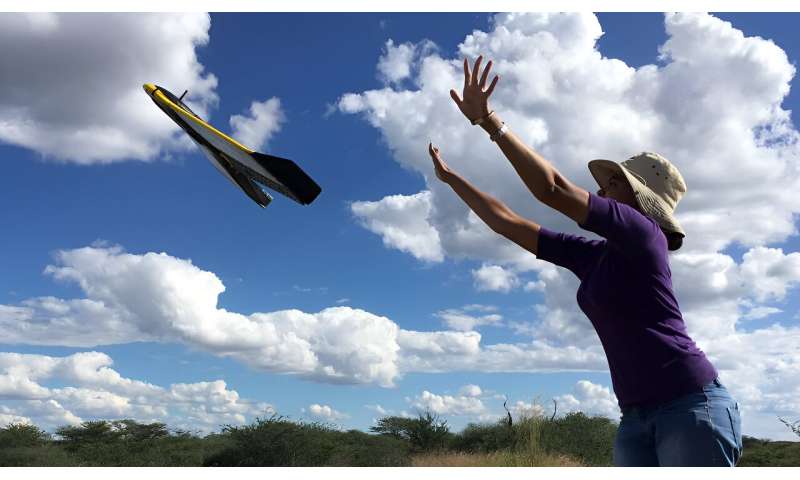Impact of Global South research 'should be recognized'

The quality and applicability of research done by institutions in low- and middle-income countries needs to be more broadly recognized, a panel of research funders and observers heard as part of a science summit held on the sidelines of the UN General Assembly.
"When researchers in the global North produce research, it's understood as if it was universal, whereas when research is done in the Global South, then it's only local and applicable to those settings," Andrea Ordonez Llanos, executive director of Southern Voice, a network of think tanks in the Global South, told the panel discussion on Thursday, September 21.
"This is one of those perceptions of quality and impact that we need to start changing," she said. "Researchers in the Global South are very much aware that this needs to be changed."
One of the issues is that equitable research partnerships can be tricky to carry out, according to Mark Claydon-Smith deputy director of international funds at UKRI, the U.K.'s research funding body.
"There are strong headwinds that push against it," Claydon-Smith told the panel.
"People need to be actively promoting this, thinking very carefully about contributions, benefits and, critically, about agency for all the different participants in projects."
It came as a report published in September by the UK Collaborative on Development Research (UKCDR) found that long-term, equitable partnerships between academic institutions in the Global South and low- and middle-income countries were central to achieving impact in development research.
The report analyzed 891 international development research case studies and came up with a framework for promoting impact, consisting of six "research enablers."
The framework covers funding approaches, capacity strengthening and operational processes, as well as co-production of research with those set to benefit from it.
Co-production "emphasizes the importance of recognizing and engaging with multiple research users as equal users, as equal partners from the very beginning of the process," Andrea Padilla, research and policy officer at UKCDR, told the panel.
"This helps ensure that outcomes are more contextually relevant."
Equitable funding
For Claydon-Smith, this means establishing equitable funding partnerships, based on mutual interests.
"Approaching it together from the outset, setting the agenda about delivery, and then thinking about impacts [is] absolutely critical," he said.
He pointed to the Science Granting Councils Initiative (SGCI), a multilateral initiative to strengthen capacity at public science funding agencies in 17 countries in Sub-Saharan Africa, as an "enabler and a game-changer."
Dorothy Ngila, director of knowledge networks and SGCI at the National Research Foundation in South Africa, said that one of the initiative's major strengths was being open to experimentation.
"We value the many lessons we've learned about capacity strengthening, how to do it in diverse contexts and configurations, and in diverse national systems of innovation," she said.
"We now have actively embraced experimentation."
However, in many cases, research funding still flows from the global North to Global South, creating imbalances and the risk of funders imposing their own agendas on researchers or communities.
Francesco Obino, director of research and programs at the Global Development Network, said this had to change.
"The design of partnerships, the way implementation is done, the way one thinks about evaluation […] means thinking about all of those things at the funding stage," Obino said.
"Thinking about how to make research funding most impactful is about thinking of the systems when we design opportunities."
The world has seven years left to achieve the 2015 Sustainable Development Goals and multidisciplinary, equitable and impact science is vital to achieving those goals, according to the 2023 Global Sustainable Development report, published in September.
"I think we're moving from an emphasis on research ethics to research impact as well," said Charles Forsdick, a professor of French at the University of Liverpool in the U.K. and a sub-panel chair of the Research Excellence Framework 21, a system for assessing research excellence at the UK's higher education institutions.
"There's a real invitation to demonstrate the ways in which the principles of research integrity are evident in impact itself.
"That's going to be the case in terms of more equitable partnerships, for thinking about co-design [of projects]," he said, adding, "And crucially […] thinking through the use of language and not just assuming that English is the default lingua franca."
Provided by SciDev.Net